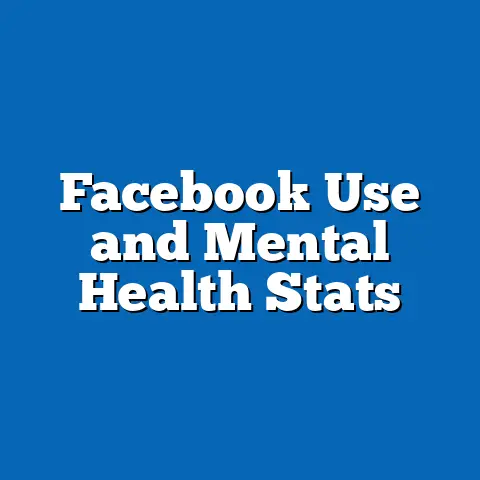Are Facebook Marketplace Ads Effectively Vetted? (Expert Insight)
What if you stumbled upon a fantastic deal on Facebook Marketplace—a vintage guitar listed for half its value? You click on the ad, excited by the prospect of snagging this bargain, but then you wonder: how do I know this ad is legitimate? Are Facebook Marketplace ads effectively vetted? This question lingers in the minds of many users navigating the bustling marketplace on one of the world’s largest social media platforms. As a digital marketing specialist, I’ve seen both the incredible potential and the inherent risks of platforms like Facebook Marketplace. I’ve helped businesses leverage it for legitimate growth, but I’ve also witnessed firsthand the frustration and even financial losses that can arise from encountering deceptive or fraudulent listings. In this article, I’ll dive deep into the realities of Facebook Marketplace ad vetting, offering expert insights and practical advice to help you navigate this digital landscape safely and effectively.
The Rise of Facebook Marketplace Ads
Facebook Marketplace has become a digital phenomenon. Launched in 2016, it’s grown from a simple feature allowing users to buy and sell locally to a bustling e-commerce hub integrated directly within the world’s largest social network. Its inception was a natural extension of Facebook’s existing social fabric, leveraging its vast user base and established communication channels to facilitate transactions.
The trend of online marketplaces has been steadily climbing for years. People are increasingly comfortable buying and selling online, seeking convenience, variety, and often, better deals. Facebook Marketplace taps into this trend perfectly, offering a user-friendly interface and leveraging the familiarity of the Facebook platform.
The strategic importance of ads within the Marketplace ecosystem cannot be overstated. While organic listings certainly have their place, ads allow sellers to reach a much wider audience, boosting visibility and potentially driving more sales. This, in turn, generates revenue for Facebook and incentivizes them to further develop and improve the platform.
Consider these statistics:
- User Engagement: Facebook Marketplace boasts hundreds of millions of active users globally. These users are not just browsing; they’re actively engaged in buying and selling.
- Transaction Volume: The estimated transaction volume on Facebook Marketplace is in the billions of dollars annually, demonstrating its significant economic impact.
These numbers highlight the massive scale of Facebook Marketplace and the critical need for effective ad vetting to protect both buyers and sellers. The platform’s success hinges on maintaining a level of trust and safety, which is directly impacted by the quality and legitimacy of the ads displayed.
Takeaway: Facebook Marketplace is a powerful e-commerce platform with significant reach and transaction volume. The effectiveness of its ad vetting process is crucial for maintaining user trust and ensuring a positive experience for both buyers and sellers.
Understanding the Vetting Process
So, what exactly is Facebook doing to ensure the legitimacy of the ads that appear on Marketplace? This is where things get a bit murky. While Facebook presents a veneer of security, the actual mechanisms in place are often less robust than users might expect.
Facebook outlines certain criteria that sellers must adhere to when listing items. These include:
- Accurate Product Descriptions: Sellers are expected to provide truthful and detailed descriptions of the items they are selling.
- Clear Pricing: The price of the item must be clearly stated and not misleading.
- Compliance with Policies: Listings must comply with Facebook’s Commerce Policies, which prohibit the sale of certain items, such as illegal drugs, weapons, and counterfeit goods.
- Seller Requirements: Sellers are required to provide accurate contact information and are expected to respond to inquiries promptly.
Facebook claims to employ a combination of automated and manual review processes to vet ads. The automated system uses algorithms to detect potentially fraudulent or misleading listings based on keywords, images, and other data points. Listings flagged by the automated system may then be reviewed manually by Facebook’s team of moderators.
However, the effectiveness of these processes is often debated. The sheer volume of listings on Facebook Marketplace makes it challenging to thoroughly vet every ad. The automated system can be prone to false positives and negatives, while the manual review process can be slow and inconsistent.
In my experience, the vetting process often relies heavily on user reporting. If a user encounters a suspicious ad, they can report it to Facebook for review. This system can be effective, but it depends on users being vigilant and actively reporting problematic listings.
Takeaway: Facebook’s ad vetting process involves a combination of automated and manual reviews, but its effectiveness is limited by the sheer volume of listings and the potential for human error. User reporting plays a crucial role in identifying and removing fraudulent or misleading ads.
Common Concerns Among Users
Despite Facebook’s efforts, many users harbor concerns about the effectiveness of the Marketplace’s ad vetting process. These concerns often revolve around:
- Fraudulent Listings: This is perhaps the most significant concern. Users worry about encountering ads for items that don’t exist, are misrepresented, or are simply scams designed to steal money or personal information.
- Misleading Product Descriptions: Even if a listing isn’t outright fraudulent, it may contain misleading information about the product’s condition, features, or authenticity. This can lead to disappointment and frustration for buyers.
- Safety Risks for Buyers and Sellers: Meeting up with strangers to exchange goods can pose safety risks, especially for those who are buying or selling alone. The lack of a secure transaction platform within Marketplace also adds to these risks.
I’ve heard countless stories from users who have had negative experiences on Facebook Marketplace. One common scenario involves buyers sending money for an item that is never delivered. Another involves sellers being targeted by fake buyers who attempt to scam them out of their goods.
For example, a friend of mine was recently looking for a used laptop on Marketplace. She found an ad that seemed too good to be true – a high-end model listed at a significantly discounted price. She contacted the seller, who insisted on being paid via a third-party payment app before shipping the laptop. Unfortunately, after sending the money, she never received the laptop and the seller disappeared.
These types of experiences highlight the real risks associated with using Facebook Marketplace and the importance of being cautious and informed.
Takeaway: Users have legitimate concerns about fraudulent listings, misleading product descriptions, and safety risks on Facebook Marketplace. These concerns underscore the need for more effective ad vetting and greater user awareness.
Expert Insights on the Vetting Process
To gain a deeper understanding of the effectiveness of Facebook’s ad vetting process, I sought insights from digital marketing experts, e-commerce professionals, and consumer safety advocates. Their perspectives offer valuable context and shed light on the challenges and opportunities facing Facebook Marketplace.
“Facebook Marketplace is a powerful tool for reaching local customers,” says Sarah Jones, a digital marketing consultant who specializes in e-commerce. “However, businesses need to be aware of the risks associated with the platform. The ad vetting process is not perfect, and it’s important to take steps to protect yourself from fraud.”
Jones recommends that businesses carefully vet potential buyers and sellers before engaging in transactions. She also advises using secure payment methods and avoiding deals that seem too good to be true.
Consumer safety advocates emphasize the importance of user education and vigilance. “Consumers need to be aware of the red flags that can indicate a fraudulent listing,” says Mark Williams, a consumer protection lawyer. “These include unusually low prices, requests for payment via unconventional methods, and sellers who are unwilling to meet in person.”
Williams also notes that Facebook’s ad vetting process is often less rigorous than that of other online marketplaces, such as eBay. “eBay has a more established system for verifying sellers and protecting buyers,” he says. “Facebook Marketplace is still relatively new, and its vetting process is still evolving.”
Recent studies have evaluated the safety and reliability of Facebook Marketplace ads. One study found that a significant percentage of listings on Marketplace were either fraudulent or contained misleading information. The study also found that users who were new to the platform were more likely to fall victim to scams.
Takeaway: Experts agree that Facebook’s ad vetting process is not as effective as it could be. They recommend that users exercise caution and be vigilant when engaging with Marketplace ads. User education and awareness are crucial for protecting against fraud and ensuring a positive experience.
The Role of User Feedback and Community Reporting
While Facebook’s automated and manual vetting processes play a role in identifying problematic ads, user feedback and community reporting are equally important. In fact, in many cases, these mechanisms are the first line of defense against fraudulent or misleading listings.
Facebook encourages users to report any ads that they believe violate the platform’s policies. This can be done by clicking on the “Report Ad” button located on each listing. When a user reports an ad, Facebook’s team of moderators reviews the report and takes appropriate action, which may include removing the ad, suspending the seller’s account, or contacting law enforcement.
Reviews and seller ratings also play a crucial role in maintaining the integrity of Marketplace ads. Buyers can leave reviews for sellers after completing a transaction, providing valuable feedback about their experience. Sellers with consistently positive reviews are more likely to be trustworthy, while those with negative reviews should be approached with caution.
User accountability is also essential. Facebook requires users to provide accurate contact information and encourages them to use their real names and profiles when engaging in transactions. This helps to deter fraudulent activity and makes it easier to track down scammers if necessary.
However, the effectiveness of user feedback and community reporting depends on users being willing to participate. Many users are hesitant to report ads or leave reviews, either because they don’t want to get involved or because they don’t believe that their feedback will make a difference.
Facebook could do more to encourage user participation in the reporting process. For example, they could provide clearer instructions on how to report ads and make it easier for users to leave reviews. They could also offer incentives for users who report fraudulent listings, such as priority customer support or discounts on future purchases.
Takeaway: User feedback and community reporting are essential components of the Facebook Marketplace ad vetting process. Encouraging user participation and providing clear channels for reporting can help to identify and remove fraudulent or misleading ads.
Case Studies of Success and Failure
To illustrate the complexities of Facebook Marketplace ad vetting, let’s examine some case studies of both successful and failed transactions.
Case Study 1: Successful Transaction – Vintage Furniture Find
Sarah, a young professional, was looking to furnish her new apartment on a budget. She stumbled upon an ad on Facebook Marketplace for a vintage mid-century modern coffee table listed at a reasonable price. The seller had positive reviews and provided detailed photos of the table.
Sarah contacted the seller and arranged to meet in person to inspect the table. She was impressed with its condition and negotiated a slightly lower price. She paid the seller in cash and transported the table to her apartment.
In this case, the transaction was successful because Sarah took several precautions:
- She checked the seller’s reviews and ratings.
- She inspected the item in person before paying.
- She paid in cash, avoiding the risk of online payment fraud.
Case Study 2: Failed Transaction – The Phantom Smartphone
John, a college student, saw an ad on Facebook Marketplace for a brand new smartphone listed at a significantly discounted price. The seller claimed to be selling it because he had received it as a gift but already had a phone.
John contacted the seller and agreed to purchase the phone. The seller insisted on being paid via a third-party payment app before shipping the phone. John sent the money, but he never received the phone. The seller disappeared and blocked John’s phone number.
In this case, the transaction failed because John ignored several red flags:
- The price was too good to be true.
- The seller insisted on being paid via an unconventional method.
- The seller was unwilling to meet in person.
These case studies highlight the importance of being cautious and informed when engaging with Facebook Marketplace ads. Successful transactions often involve careful vetting of sellers and products, while failed transactions often result from ignoring red flags and taking unnecessary risks.
Takeaway: Examining case studies of successful and failed transactions can provide valuable insights into the effectiveness of Facebook Marketplace ad vetting. By learning from these examples, users can make more informed decisions and protect themselves from fraud.
Future of Facebook Marketplace Ads
The future of Facebook Marketplace ads is likely to be shaped by several factors, including technological advancements, increased scrutiny, and evolving user expectations.
One potential area of improvement is the use of artificial intelligence (AI) and machine learning to enhance the ad vetting process. AI can be used to automatically detect fraudulent or misleading listings based on patterns and anomalies in the data. Machine learning can be used to improve the accuracy of the automated system over time by learning from past mistakes.
Facebook is also likely to face increased scrutiny from regulators and consumer protection agencies. As the platform grows in popularity, it will be subject to greater pressure to ensure the safety and reliability of its ads. This could lead to stricter regulations and more aggressive enforcement actions.
Finally, user expectations are likely to evolve over time. As users become more aware of the risks associated with Facebook Marketplace ads, they will demand greater transparency and accountability from the platform. This could lead to changes in the way that Facebook vets ads and protects users.
In the future, we may see Facebook implementing features such as:
- Verified Seller Badges: A system for verifying the identity and legitimacy of sellers.
- Escrow Services: A secure payment platform that holds funds until the buyer receives the item and is satisfied with its condition.
- Buyer Protection Programs: A guarantee that buyers will be reimbursed if they are defrauded by a seller.
These types of features could significantly improve the safety and reliability of Facebook Marketplace ads and make the platform a more trustworthy place to buy and sell goods.
Takeaway: The future of Facebook Marketplace ads will be shaped by technological advancements, increased scrutiny, and evolving user expectations. Implementing features such as verified seller badges, escrow services, and buyer protection programs could significantly improve the safety and reliability of the platform.
Conclusion
Navigating Facebook Marketplace ads requires a blend of optimism and caution. The platform offers incredible opportunities to find unique deals and connect with local sellers, but it also presents inherent risks. As we’ve explored, the effectiveness of Facebook’s ad vetting process is a complex issue, with ongoing challenges and potential solutions.
The key takeaway is this: vigilance and consumer awareness are paramount. Don’t let a tempting price tag cloud your judgment. Take the time to research sellers, inspect items carefully, and use secure payment methods. Remember that if a deal seems too good to be true, it probably is.
As Facebook continues to evolve its ad vetting process, it’s up to us, the users, to hold them accountable. By reporting suspicious ads, leaving honest reviews, and demanding greater transparency, we can help to create a safer and more trustworthy marketplace for everyone.
So, the next time you’re browsing Facebook Marketplace and spot that vintage guitar at a price that seems almost unbelievable, take a moment to pause and ask yourself: “Am I being vigilant? Am I protecting myself?” Your answer could make all the difference between a great deal and a costly mistake.
Final Thought: What steps can you take today to become a more informed and cautious user of Facebook Marketplace ads? Your answer could not only protect you but also contribute to a safer online community for everyone.






